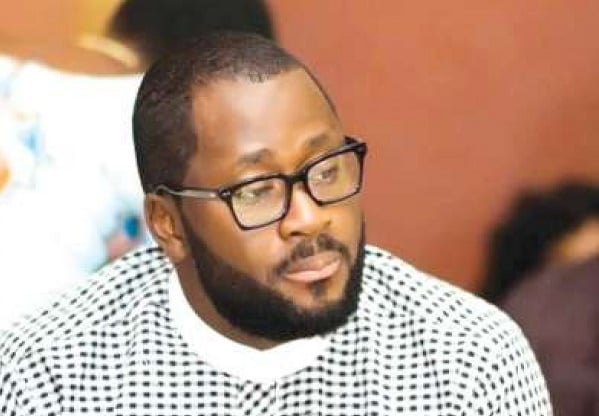Nigerian youths on Twitter are the best fans anyone can have. They will support one on unimaginative pedestals and fan the flame of one’s moderate success till it appears as though it’s an inferno. They will also frustrate one’s perceived detractors with endless tweets of “E choke,” encourage one’s efforts with “Ko po ke,” and even “stan” to the level of obsession.
But make no mistake, they are just as fierce when one falls in the crosshairs of their fury. If they are against you, they will do everything to drag you to the mud.
This may include twisting the meanings of all of one’s tweets or blaming the person for everything that goes wrong — even when such has nothing to do with them.
Desmond Elliot’s instance is a glaring example of having Nigeria’s Twitter mob in the opposition camp.
In the past few months, the lawmaker representing Surulere at the Lagos state house of assembly has been getting constant flakes from Nigerian youths on Twitter. From being accused of causing the divorce of Bill and Melinda Gates as well as facilitating Davido and Chioma’s seemingly crumbling relationship; Elliot has become Twitter Nigeria’s number one scapegoat.
In April, the actor-turned-politician took to his Facebook page to acknowledge the fact that he’s being blamed for everything on Twitter with a post that read: “Wetin dem talk say I do again”.
But how did the once-revered movie star end up being the one person blamed for the wrongdoings, mistakes, or faults of others on the microblogging platform?
“I’m a product of Godfatherism”
The meltdown started in September 2020 before the Edo gubernatorial election.
Godwin Obaseki, governor of the state, had defected to the People’s Democratic Party (PDP) from the All Progressives Congress (APC) to pursue his second term bid in office at the time.
He had launched “Edo no be Lagos” as his campaign mantra — referencing the perceived hegemony Bola Tinubu, a national leader of the APC, seemed to have in the southwest.
Obaseki was also determined to topple the influence of Adams Oshiomhole, a former governor of the state, after the pair fell out.
Elliot perceived this as an insult on the institute of governance of Lagos, plainly stating that “he is a product of godfatherism” — to the chagrin of several Nigerian youths on Twitter.
“A godfather always tries to look after the interest of his people. I’m a product of godfatherism but Tinubu has never for one day asked me to do something you know would be detrimental,” he had said.
“It’s progressive. So, let him (Obaseki) not castigate the whole thing. If not for godfatherism, would he be where he is today? My point isn’t even about him; it’s that I want to talk about my candidate.”
Elliot’s comment had provoked a plethora of negative reactions on the microblogging platform with some users accusing him of “destroying the process that cemented the ‘not too young to run’ agenda.”
#EndSARS “Children”
Obaseki eventually won the election and the controversy over the aforementioned drama dwindled. But shortly after, the ordeals of Nigerian youths at the hands of the now-disbanded special anti-robbery squad (SARS) operatives took centre stage and stirred nationwide protests.
The two-week-long demonstration took a severe dimension on October 20 when men of the Nigerian army shot at protesters at the Lekki toll gate in Lagos. Violence erupted from there on, dealing the state several human and property casualties.

At the state assembly’s first meeting after the turmoil, a video surfaced wherein Elliot, expected by many to back the young protesters, referred to those who reacted hysterically to the toll gate incident as “children.”
“Let me first thank you for condemning the wanton killings and carnage that happened at Lekki. When I went through the comments, I could not believe it, Mr. Speaker. Curses, the abuses from children,” he said in the video.
“And I asked myself, ‘Is this Nigeria? What is going on? Children cursing. People having the effrontery to enter an Oba’s palace and hold his staff of office? Culture is gone!”
This had opened the floodgates of another round of backlashes for Elliot on social media while also deepening the cracks between the actor and Nigerian youths on Twitter.
Supporting social media bill
The straw that broke the camel’s back was the part of the video where the lawmaker called for regulation of social media.
“We need to address certain things: Nigerian youth; social media; social influencers. These make the narrative that we’re seeing today. Except we’re joking with ourselves, social media has its negative impacts,” he had said.
This had aroused widespread outrage on the microblogging platform with some youths accusing the actor of “hypocrisy”. Elliot was also accused of attempting to destroy the platform that brought him into office in the first place.
Nigerians on Twitter thereafter dug out a video from 2015 wherein Elliot admitted that social media was instrumental to his emergence as a lawmaker.
They agreed “he’s a leaf that has been mixed with soap for too long hence he’s decomposed into the same.”
Although the lawmaker apologised for all “these sins,” his apology has proven inadequate to mend the shattered relationship with the youths of the country.
One can’t tell for how long “I blame Desmond Elliot” will follow anything unsavory on social media.
The lesson from the ongoing drama, however, is clear.
When you have Nigerian youths on Twitter against you, they can make you feel like you’re napping on a pillow of clouds or you’re smeared all over in faeces.
Just ask Elliot for his experience so far.
Copyright 2024 TheCable. All rights reserved. This material, and other digital content on this website, may not be reproduced, published, broadcast, rewritten or redistributed in whole or in part without prior express written permission from TheCable.
Follow us on twitter @Thecablestyle

